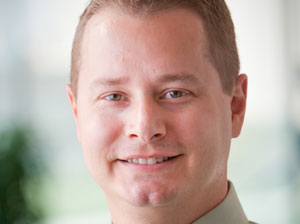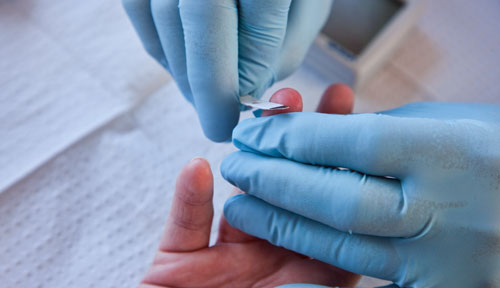A UNMC study has found that the number of uninsured people under the age of 65 in Nebraska increased by 67.4 percent between 2000 and 2010.
The study determined that the number of uninsureds has increased from 8.9 percent (156,300 people) in 2000 to 14.9 percent (217,100 people) in 2010.
 |
The College of Public Health’s Jim Stimpson, Ph.D., above, and Kelly Shaw-Sutherland co-authored paper that shows a drastic increase in the number of Nebraskans who lack health insurance. |
In the Midwest region, the uninsured rate in the past decade climbed from 10.5 percent to 14.8 percent.
Other observations
Additional study findings included:
- 16 Nebraska counties had a high uninsurance rate (21 percent-31 percent) in 2009.
- In Nebraska, the number of individuals with employer-based insurance decreased by approximately 9.3 percent between 2000 and 2010, and the number of individuals who purchased insurance directly increased by approximately 16 percent.
- Three insurance carriers make up 91 percent of the private insurance market in 2011.
Key factors
In analyzing the uninsureds in Nebraska, several key elements come to the surface, said Kelly Shaw-Sutherland, health data analyst in the UNMC College of Public Health and co-author of the report:
- A majority of the uninsured population is above the poverty threshold;
- One-third work less than full-time year-round; and
- 40,000 are not U.S. citizens.
Uninsurance rates are high in Nebraska’s rural-frontier counties, where a disproportionate share of the population lives in poverty, are un/under-employed and less healthy. Nebraska does better than its peers in the Midwest on most measures of health insurance, possibly due in part to low unemployment levels and to state efforts to expand insurance coverage, Shaw-Sutherland said.
Change needed
In light of the U.S. Supreme Court’s recent decision to uphold the Affordable Care Act of 2010, Dr. Stimpson said Nebraska will need to determine if it wants to expand Medicaid eligibility for individuals younger than 65 years.
“The persistently high uninsurance rate points out the need for additional policies that would allow more people to participate in the health insurance market,” said Dr. Stimpson, who noted that the establishment of a health insurance exchange could create a larger, more robust risk pool from which insurance may be purchased and potentially drive down costs while increasing access.
